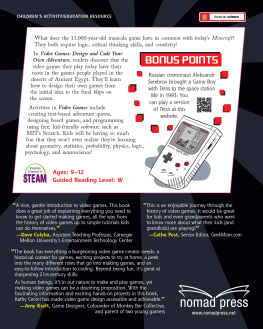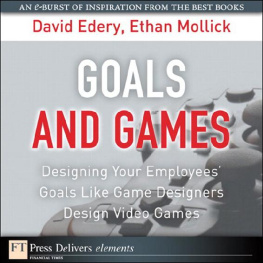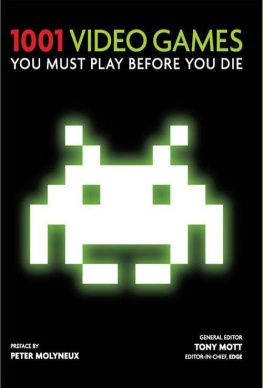Braxton Soderman - Against Flow: Video Games and the Flowing Subject
Here you can read online Braxton Soderman - Against Flow: Video Games and the Flowing Subject full text of the book (entire story) in english for free. Download pdf and epub, get meaning, cover and reviews about this ebook. year: 2021, publisher: MIT Press, genre: Romance novel. Description of the work, (preface) as well as reviews are available. Best literature library LitArk.com created for fans of good reading and offers a wide selection of genres:
Romance novel
Science fiction
Adventure
Detective
Science
History
Home and family
Prose
Art
Politics
Computer
Non-fiction
Religion
Business
Children
Humor
Choose a favorite category and find really read worthwhile books. Enjoy immersion in the world of imagination, feel the emotions of the characters or learn something new for yourself, make an fascinating discovery.

- Book:Against Flow: Video Games and the Flowing Subject
- Author:
- Publisher:MIT Press
- Genre:
- Year:2021
- Rating:4 / 5
- Favourites:Add to favourites
- Your mark:
- 80
- 1
- 2
- 3
- 4
- 5
Against Flow: Video Games and the Flowing Subject: summary, description and annotation
We offer to read an annotation, description, summary or preface (depends on what the author of the book "Against Flow: Video Games and the Flowing Subject" wrote himself). If you haven't found the necessary information about the book — write in the comments, we will try to find it.
Against Flow: Video Games and the Flowing Subject — read online for free the complete book (whole text) full work
Below is the text of the book, divided by pages. System saving the place of the last page read, allows you to conveniently read the book "Against Flow: Video Games and the Flowing Subject" online for free, without having to search again every time where you left off. Put a bookmark, and you can go to the page where you finished reading at any time.
Font size:
Interval:
Bookmark:
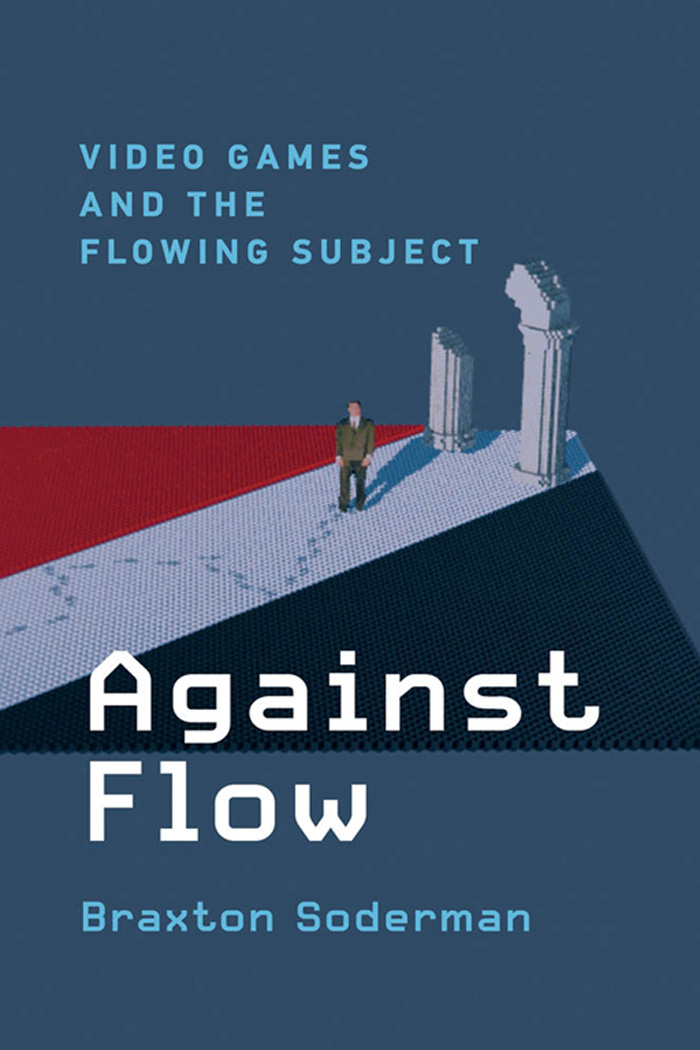
Braxton Soderman
The MIT Press
Cambridge, Massachusetts
London, England
2021 Massachusetts Institute of Technology
All rights reserved. No part of this book may be reproduced in any form by any electronic or mechanical means (including photocopying, recording, or information storage and retrieval) without permission in writing from the publisher.
This book was set in ITC Stone Serif Std and ITC Stone Sans Std by New Best-set Typesetters Ltd.
Library of Congress Cataloging-in-Publication Data
Names: Soderman, Braxton, author.
Title: Against flow : video games and the flowing subject / Braxton Soderman.
Description: Cambridge, Massachusetts : The MIT Press, [2021] | Includes bibliographical references and index.
Identifiers: LCCN 2020020602 | ISBN 9780262045506 (hardcover)
Subjects: LCSH: Video gamesPsychological aspects.
Classification: LCC GV1469.34.P79 S63 2021 | DDC 794.8dc23
LC record available at https://lccn.loc.gov/2020020602
10987654321
d_r0
This book is dedicated to my family and the memories of my mother and father
The idea for this book was formed when I was a PhD student at Brown University and studied with an extraordinary community of scholars. I would like to extend my deepest gratitude to Wendy Hui Kyong Chun and Mary Ann Doane, who have never ceased to support my work and scholarship. They taught me to perceive the world critically and to interpret the deep complexities of media cultures. I would also like to thank Philip Rosen and John Cayley, whose scholarly and creative ideas have shaped my perception of media studies. My friends and colleagues at Brown fostered a passionate community of critical inquiry and never ceased to inspire me with their thoughts and insights. Thank you to Erika Balsom, David Bering-Porter, Eugenie Brinkema, Gill Frank, Yuriko Furuhata, Josh Guilford, Daniel Howe, Justin Katko, Linda Liu, Cynthia Lugo, Julie Levin Russo, Pooja Rangan, Paige Sarlin, Michael Siegel, and Marc Steinberg.
I also had the pleasure to begin my academic career at Miami University in Oxford, Ohio. Thank you to Ron Becker, Richard Campbell, cris cheek, Shira Chess, Sean Duncan, Lindsay Grace, Mack Hagood, Jennifer Malkowski, Glenn Platt, Bob De Schutter, Nicole Starosielski, and Jacob Tonski.
I cannot thank my colleagues at UC Irvine, in the Department of Film and Media Studies, enough for their generous support and guidance. I am indebted to those who generously donated time to provide feedback on chapters of this book, including Lucas Hilderbrand, Peter Krapp, Bliss Cua Lim, Catherine Liu, and Allison Perlman. I also received wonderful advice and support as I navigated both the anxiety and boredom of the publishing process, including from Tom Boellstorff, Kristen Hatch, Victoria Johnson, and Fatimah Tobing Rony.
I would like to thank Tom in particular for his support. While working on this book, Tom and I have been writing another book about Intellivision (the video game system that was better than the Atari VCS). I would not have completed my first book without Toms patience, friendship, and mentorship. Thank you, Tom, for teaching me the passion and persistence that animates academic research.
I also would like to express my gratitude to Bo Ruberg, Tess Tanenbaum, and Aaron Trammell, colleagues at UC Irvine who have been wonderful collaborators and friends. I thank Bo as well for inviting me to present ideas from this book at the USC PlayThink series in 2016. In addition, thank you to Matt Knutson and Justin Keever, two graduate students with whom I have worked closely during my time at UC Irvine and who have shaped the thoughts in this book through our conversations about the strange beauty of video games. Since my arrival at UC Irvine, the Institute for Virtual Environments and Computer Games and the UCI Humanities Center have provided support for my research. Thank you to the UCI Humanities Center for a grant to support the publication of this book.
Thank you to Mady Schutzman, an inspirational mentor during my time studying writing at CalArts. Mady graciously published a short piece on flow in her book Radical Doubt: The Joker System, after Boal (2018). Thank you as well to Russel Swensen, who always had my back. Finally, I would never have become an academic without the encouragement and support of Michael Joyce at Vassar College, who taught me to see the possibilities and poetics within the digital.
This book would not have been completed without the unceasing assistance of Amy Mulligan and Emily Walton. I met these scholars in the Faculty Success Program through the National Center for Faculty Development and Diversity. They offered endless advice, support, accountability, and inspiration. While the Faculty Success Program taught methods for effective academic productivityprofessional self-help for the academic laborerin truth, Amy and Emily taught me the value of academic friendship and the selfless help of others. I also thank the ADVANCE Program for Equity and Diversity at UC Irvine for a grant to join the Faculty Success Program.
I would also like to thank the editors who helped with this project. Without the incredible editorial assistance from Laura Portwood-Stacer, Heath Sledge, and Meghan Drury, I would still be spinning my wheels wondering how to write a book. Moreover, thank you to Virginia Crossman, Doug Sery, Noah Springer, and the entire editorial team at the MIT Press for their wonderful advice, assistance, and guidance.
Finally, thank you to my sisters and aunt who always were there to take my call and offer their support and love. I reserve my deepest gratitude for my wife and children. Thank you, Roxi, for your ceaseless support and endless patience. Unfortunately, this book was not written in a state of euphoric flow, but you always inspired me to see the fact that aspirational desire pales in comparison to the everyday love of those closest to the heart. I cannot thank you enough. Finally, while this book is critical of flow and play, my children, Orryn and Oona, always remind me to stop being so grumpy and to just come along with them and play. Thanks kids! Ready or not, here I come!
I grew up playing games like Space Invaders (1978) and Centipede (1980) in the arcades, feeding quarters into the hungry game cabinets, desperately trying to improve my skills so I could play longer and longer. Despite my best efforts, I would quickly succumb to the ever-faster, ever-more-deadly descending aliens or twisting centipede. The games quick ratcheting up of difficulty grew out of the economics of the arcade: when players lost their coveted and expensive lives, they spent more coins to keep playing. The introduction of home game systems like the Atari VCS and Intellivision from Mattel Electronics changed this dynamic. Owners of these systems could play games repeatedly in the comfort of their living rooms, without a handful of quarters dwindling in their pockets. Without the worry about money, how did these console games keep their players riveted? One answer is that they set up the conditions for players to experience what we call flow.
The conditions that generate flow are visible in one of my favorite games from this period, Astrosmash (1981), programmed by John Sohl for the Intellivision system (figure 0.1). Astrosmash is similar to Space Invaders and Asteroids (1979). Players shoot falling meteors, spinning bombs, and attacking UFOs to earn points. The goal is clearstay alive and achieve a high score. Like arcade games in the early 1980s,
Next pageFont size:
Interval:
Bookmark:
Similar books «Against Flow: Video Games and the Flowing Subject»
Look at similar books to Against Flow: Video Games and the Flowing Subject. We have selected literature similar in name and meaning in the hope of providing readers with more options to find new, interesting, not yet read works.
Discussion, reviews of the book Against Flow: Video Games and the Flowing Subject and just readers' own opinions. Leave your comments, write what you think about the work, its meaning or the main characters. Specify what exactly you liked and what you didn't like, and why you think so.

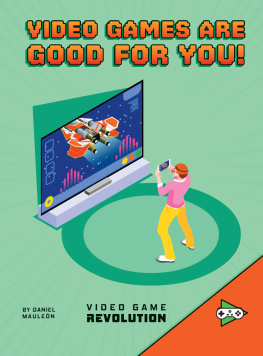
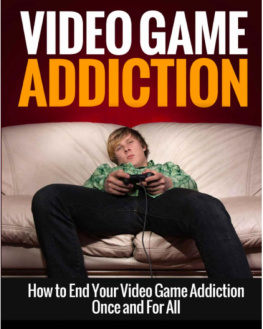


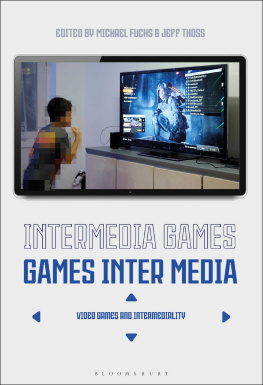
![Mark J. P. Wolf (editor) - Encyclopedia of Video Games: The Culture, Technology, and Art of Gaming [3 volumes]](/uploads/posts/book/279290/thumbs/mark-j-p-wolf-editor-encyclopedia-of-video.jpg)
